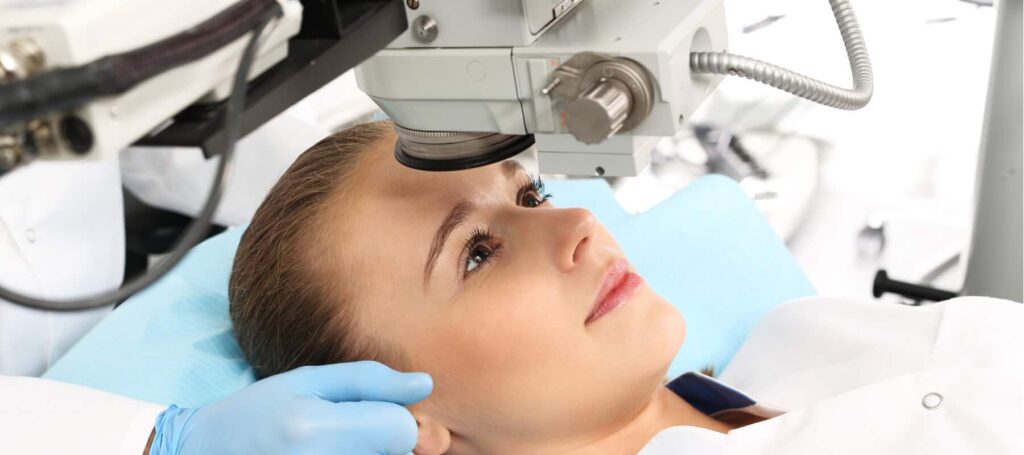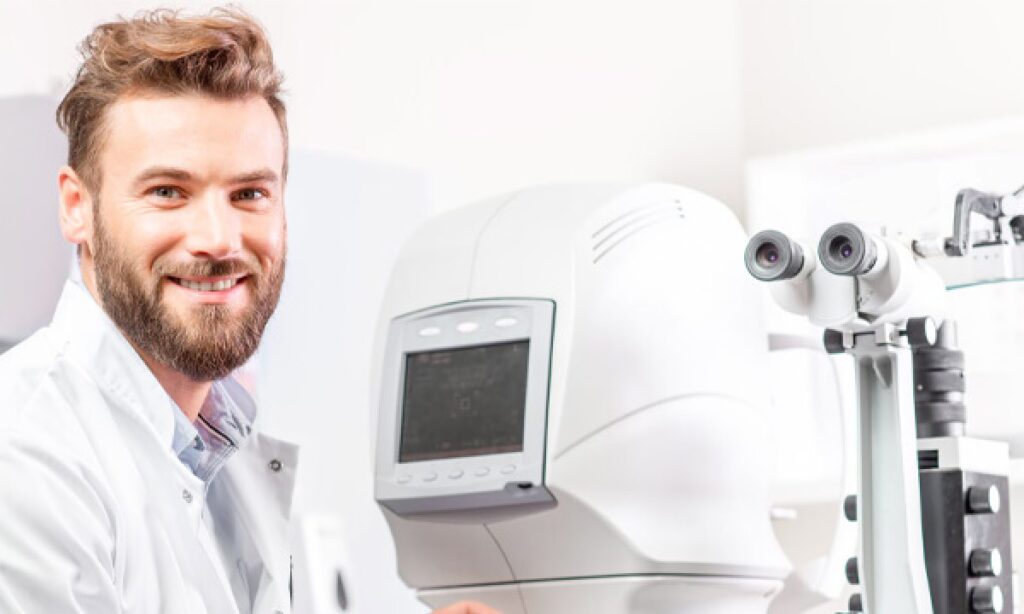Laser eye surgery is a revolutionary procedure that has transformed the lives of millions of individuals around the world. If you have been living with poor vision and are tired of depending on glasses or contact lenses, laser eye surgery in Sydney could be the solution you’ve been searching for. Not only can it improve your vision, but it can also have a positive impact on your overall quality of life.
Understanding Laser Eye Surgery
Before delving into the benefits and considerations of laser eye surgery, it’s important to understand what the procedure entails. Laser eye surgery, also known as refractive surgery, is a surgical procedure that aims to correct various vision problems, such as nearsightedness (myopia), farsightedness (hyperopia), and astigmatism. The goal of the surgery is to reshape the cornea, the clear front surface of the eye, to improve how light is focused onto the retina.
Patients considering laser eye surgery sydney should be aware that the procedure is typically quick and painless, with most individuals experiencing improved vision almost immediately after the surgery. However, it’s essential to consult with an experienced ophthalmologist to determine if you are a suitable candidate for the surgery and to discuss any potential risks or complications.
What is Laser Eye Surgery?
Laser eye surgery utilizes advanced laser technology to reshape the cornea, allowing light to properly focus on the retina. During the procedure, a specialized laser is used to remove thin layers of tissue from the cornea, resulting in a more focused and clearer vision.
The Science Behind the Procedure
The science behind laser eye surgery is based on the principles of refractive error correction. Refractive errors occur when the shape of the eye prevents light from focusing directly on the retina, leading to blurred vision. By precisely reshaping the cornea, laser eye surgery corrects these errors and improves the eye’s ability to focus light accurately.
Furthermore, advancements in laser technology have led to different types of laser eye surgery procedures, such as LASIK (Laser-Assisted In Situ Keratomileusis) and PRK (Photorefractive Keratectomy), each offering unique benefits and considerations. Consulting with a qualified eye surgeon can help determine the most suitable option based on individual eye conditions and preferences.

Benefits of Laser Eye Surgery
One of the most significant advantages of laser eye surgery is the improvement it can bring to your vision and overall quality of life. Here are a few benefits you can expect:
Vision Improvement and Correction
Laser eye surgery can significantly improve your vision, allowing you to see clearly without the need for glasses or contact lenses. Many patients experience near-perfect vision after the procedure, which can be life-changing for those who have relied on visual aids for most of their lives.
Long-Term Financial Benefits
While laser eye surgery is an investment upfront, it can result in substantial long-term savings. Consider the expenses associated with buying new glasses, contact lenses, and solutions regularly. With laser eye surgery, you can eliminate or greatly reduce these ongoing costs, ultimately saving you money in the long run.
Another benefit of laser eye surgery is the convenience it offers. Imagine waking up in the morning and being able to see clearly without reaching for your glasses or inserting contact lenses. This newfound freedom from visual aids can simplify your daily routine and enhance your overall lifestyle.
Furthermore, laser eye surgery can provide a sense of confidence and independence. Being able to navigate the world with improved vision can boost your self-esteem and allow you to participate in activities that you may have previously avoided due to vision limitations. Whether it’s playing sports, traveling, or simply enjoying the beauty of the world around you, laser eye surgery can empower you to live life to the fullest. Read more about confidence and independence at https://rms.wa.edu.au/montessori-education-fosters-independence-and-self-confidence/
Preparing for Laser Eye Surgery in Sydney
Before undergoing laser eye surgery in Sydney, it is important to understand the steps involved in preparing yourself mentally and physically for the procedure. While the prospect of improved vision is exciting, proper preparation is key to a successful outcome.
One crucial aspect of preparing for laser eye surgery is educating yourself about the procedure and what to expect before, during, and after. Understanding the risks and benefits, as well as having realistic expectations, can help you feel more confident and prepared on the day of the surgery.
Initial Consultation and Assessment
The first step towards laser eye surgery is scheduling an initial consultation with an experienced eye surgeon. This consultation is a vital opportunity for the surgeon to assess your eyes, discuss your medical history, and determine whether you are a suitable candidate for the procedure. It is also a chance for you to ask any questions you may have and address any concerns about the surgery.
During the assessment, the surgeon will perform a series of tests to evaluate the health of your eyes and determine the most appropriate treatment plan for your specific needs. This may include measuring the thickness of your cornea, assessing your refractive error, and checking for any underlying eye conditions that may affect the surgery.
Pre-Surgery Guidelines
Prior to the surgery, your eye surgeon will provide you with specific guidelines to follow. These guidelines are designed to help optimize the results of the surgery and minimize the risk of complications. They may include instructions such as avoiding wearing contact lenses for a certain period before the surgery, discontinuing the use of certain medications that could interfere with the procedure, and refraining from smoking or consuming alcohol in the days leading up to the surgery.
Following these pre-surgery guidelines is essential for ensuring the success of the procedure. By adhering to the instructions provided by your surgeon, you can help create the best possible conditions for a smooth and effective laser eye surgery experience.
The Laser Eye Surgery Procedure
The laser eye surgery procedure itself typically takes less than 30 minutes and is virtually painless. Here is an overview of the step-by-step process:
Step-by-Step Process
- You will be given numbing eye drops to ensure your comfort throughout the procedure.
- A small instrument will be used to hold your eyelids open, preventing blinking and allowing the surgeon access to your eye.
- A thin protective flap will be created on the cornea using either a microkeratome or a femtosecond laser.
- The underlying corneal tissue will be reshaped using an excimer laser, accurately targeting the specific areas that require correction.
- The protective flap will be carefully repositioned, serving as a natural bandage to aid in the healing process.
During the procedure, you may experience a slight pressure sensation on your eye, but it should not be painful. The laser used operates with precision, reshaping the cornea to correct your vision. The entire process is guided by advanced computer technology, ensuring accuracy and safety.
Post-Surgery Care and Recovery
Following the procedure, your eye surgeon will provide you with detailed instructions on how to care for your eyes during the recovery period. You may be prescribed medicated eye drops to promote healing and prevent infection. It is crucial to attend all follow-up appointments with your surgeon to ensure that your eyes are healing properly.
During the initial days after surgery, you may experience some mild discomfort, dryness, or blurred vision. These are normal side effects and should improve as your eyes heal. It is important to avoid rubbing your eyes and follow all guidelines provided by your surgeon to optimize the healing process.
Risks and Considerations of Laser Eye Surgery
As with any surgical procedure, laser eye surgery comes with certain risks and considerations that need to be taken into account. Understanding these potential risks is essential in making an informed decision about whether laser eye surgery is right for you.
One important consideration when contemplating laser eye surgery is the possibility of undercorrection or overcorrection. While advancements in technology have significantly reduced the occurrence of these issues, there is still a small chance that your vision may not be fully corrected to your desired level. This is why realistic expectations and open communication with your eye surgeon are crucial. Click here to learn more about advancements in technology.

Potential Side Effects
Common side effects that may occur after laser eye surgery include dry eyes, glare, halos around lights, and temporary vision fluctuations. These side effects are typically temporary and resolve within a few weeks or months.
It is also important to note that while rare, more serious complications such as infection, persistent dry eye, or vision loss can occur. Your surgeon will discuss these risks with you during the consultation process and provide guidance on how to minimize the chances of experiencing such complications.
Who is a Suitable Candidate?
While laser eye surgery has a high success rate, not everyone is an ideal candidate for the procedure. Factors such as age, overall eye health, and refractive stability will be taken into consideration during the initial consultation to determine whether you are a suitable candidate for the surgery.
Additionally, individuals with certain medical conditions such as autoimmune disorders or unstable vision prescriptions may not be suitable candidates for laser eye surgery. It is important to disclose your complete medical history to your surgeon to ensure that they have all the necessary information to make an informed decision about your candidacy.
In conclusion, laser eye surgery in Sydney has the potential to improve your quality of life by providing clearer vision and eliminating the need for glasses or contact lenses. It is essential to consult with an experienced eye surgeon to determine if you are suitable for the procedure and to fully understand the benefits, risks, and considerations involved. Once you make an informed decision and undergo the surgery, you can look forward to a future with improved vision and newfound freedom from visual aids.
Read more:

